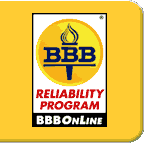1. Course Title: College Algebra
2. Prerequisite: Intermediate Algebra (Math 0310) or placement by testing
Co-requisite: English 0305 or 0316 (developmental reading) or placement
into college
Level English by testing
English 0307 or 0326 (developmental writing) or placement into college
Level English by testing
3. Credit: Three (3) Semester Hours
4. Materials Needed:
4.1 Textbook: College Algebra, Custom version for North Harris College,
by Blitzer (4th
Edition; Pearson/ Prentice Hall ) The actual version of Blitzer 4th edition
could be used by the student.
4.2 Calculators: Usage in class is at the discretion of the instructor though a
scientific calculator is
necessary in certain parts of the course.
4.3 Supplies: Graph paper is optional. However, students are expected to create
graphs that
are neat and labeled correctly.
5. Purpose:
College Algebra is designed to fulfill the minimum math requirements for
graduation from a state
four-year college and to develop the algebraic skills and concepts needed for
study in future math
courses.
6. Major Course Outcomes:
6.1 To solve quadratic and rational inequalities
6.2 To review the methods for solving quadratic equations, equations in
quadratic form, and radical
equations
6.3 To develop methods for solving equations and inequalities involving absolute
value
6.4 To develop an understanding of the concept of a function including topics
such as the domain and
range of a function, functional notation, piecewise-defined functions, function
transformations,
operations with functions , and the inverse of a function
6.5 To study techniques of graphing functions; including polynomial, rational,
exponential and
logarithmic functions.
6.6 To introduce the techniques for graphing quadratic equations in two
variables ; included are
ellipses and hyperbolas with centers at the origin and circles
6.7 To study the properties of logarithms and their applications in simplifying
expressions and solving
exponential and logarithmic equations
6.8 To develop strategies for finding zeros of polynomial functions ; included in
this study are
the Rational - Roots Theorem and the Fundamental Theorem of Algebra
7. General Course Outline: Textbook sections 1.5,
1.6, 1.7, 2.1, 2.2, 2.3, 2.4, 2.5, 2.6, 2.7, 2.8, 3.1, 3.2,
3.3, 3.4, 3.5, 3.6, 4.1, 4.2, 4.3, 4.4, 5.4, 6.1, 7.1, 7.2, 7.3(optional)
8. Evaluation: The allowable final grades in Math
1314 are A (final average of 90 to 100%), B (final average
of 80 to 89%), C (final average of 70 to 79%), D (final average of 60 to 69%),F
(final average below 60%),
and I (reserved for students unable to complete the last part of the course due
to illness or other extenuating
circumstances). Note that I’s are not to be given to a student who simply gets
behind and cannot get caught
up.
9. On-line supplemental practice problems: Your instructor will give you
information at the beginning
of the semester about supplemental practice problems that are available through
the Math Department’s
homepage. Some of these worksheets will be required homework. Your instructor
will fill you in on
all the details.
10. MyRecords: MyRecords gives students, staff, and the community access
to our databases. It allows a
student to register online, look up a course schedule, get information regarding
financial aid status, view
unofficial transcripts, search for classes and get final semester grades for a
specific term. Faculty use
MyRecords for Mid-term and Final Grading.
11. Academic Integrity: Lone Star College System is
committed to a high standard of academic integrity in
the academic community. In becoming a part of the academic community, students
are responsible for
honesty and independent effort. Failure to uphold these standards includes, but
is not limited to, the
following: plagiarizing written work or projects, cheating on exams or
assignments, collusion on an exam
or project, and misrepresentation of credentials or prerequisites when
registering for a course. Cheating
includes looking at or copying from another student’s exam, orally communicating
or receiving answers
during an exam, having another person take an exam or complete a project or
assignment, using
unauthorized notes, texts, or other materials for an exam, and obtaining or
distributing an unauthorized
copy of an exam or any part of an exam. Plagiarism means passing off as one's
own the ideas or writings of
another (that is, without giving proper credit by documenting sources).
Plagiarism includes submitting a
paper, report or project that someone else has prepared, in whole or in part.
Collusion is inappropriately
collaborating on assignments designed to be completed independently. These
definitions are not
exhaustive. When there is clear evidence of cheating, plagiarism, collusion or
misrepresentation, a faculty
member will take disciplinary action including but not limited to: requiring the
student to retake or
resubmit an exam or assignment, assigning a grade of zero or “F” for an exam or
assignment, or assigning a
grade of “F” for the course. Additional sanctions including being withdrawn from
the course/program or
being expelled from school may be imposed on a student who violates the
standards of academic integrity.
* It is the responsibility of the student to drop a class by “W” day if he/she
desires.
* Students with disabilities, who wish to request accommodations in this class,
must notify the Disability
Services Office as soon as possible so that the appropriate arrangements may be
made. Students
requesting accommodations must provide documentation of his/her disability to a
Disability Services
counselor. For more information, call or visit the Disability Services Office at
A 104, (281) 618-5481.



